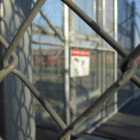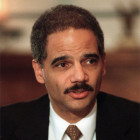
Juvenile Justice Reform Experts, Advocates Offers Suggestions For Change
|
Juvenile justice system experts and reform advocates were among those who converged upon Miami last week for an annual conference hosted by the Open Society Institute (OSI). The, New York City-based private operating and grantmaking foundation focuses on criminal justice system reform. We asked a few of them “what single change would you make to the juvenile justice system?” Here’s what they had to say.
Tarsha Jackson, an organizer with the Texas Reconciliation Project, the Texas Criminal Justice Coalition and the Houston chapter of the Association of Community Organizations for Reform Now. “I think there needs to be more focus on prevention programs, but the biggest change I would make is to train all of the system stakeholders – the district attorneys, judges, court personnel – and train them on the definition of family involvement.


